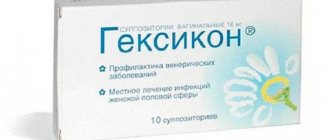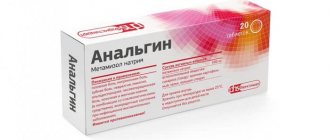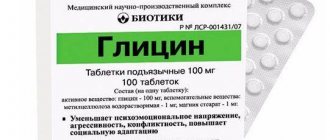Can it be used while breastfeeding?
The instructions for this medicine say that it should not be taken while breastfeeding . The World Health Organization also does not recommend drinking Suprastin during lactation, as the medicine passes into the milk and has a bad effect on the baby.
Doctors agree that it is dangerous to prescribe the drug for breastfeeding, as it can cause drowsiness in the child. However, experts continue to prescribe the drug during lactation, since it is impossible to risk the health of a nursing woman.
Allergy during lactation
If this disease appears in a nursing mother, she should immediately consult a doctor. Self-treatment will only worsen the symptoms of the disease. You need to get tested. Then the doctor will prescribe the necessary drug that will eliminate the signs of the disease.
Typically, an allergy causes the following lesions in a woman with breastfeeding:
- A severe cough develops. Most often this happens during the flowering of various plants.
- A runny nose begins. This type of lesion is typical of an allergy to pet dander.
- Redness and itching may occur due to an allergic reaction to food.
It is necessary to find out the exact reason that led to the development of allergies in a nursing woman. Only by eliminating the factors that caused the disease can one cope with the disease. Usually, to eliminate signs of the disease, the doctor prescribes antihistamines. But mothers feeding their babies with breast milk are not recommended to take such drugs, since they freely penetrate into the milk and then enter the child’s body.
The active chemical components of antihistamines, such as chloropyramine hydrochloride, can seriously harm the baby's health.
Suprastin is no exception - it also cannot be used by a woman nursing a baby.

Indications
Suprastin is an antiallergenic drug, a classic antihistamine that blocks certain receptors. In addition, the medicine has an antiemetic effect. Suprastin is produced in tablets or solution for intravenous or intramuscular administration. The drug lasts 4-6 hours.
Use is indicated if a woman experiences the following symptoms:
- hives;
- contact dermatitis;
- serum sickness;
- itching of the skin;
- acute or chronic form of eczema;
- angioedema;
- atopic dermatitis;
- conjunctivitis;
- allergic reactions to medications or food;
- allergic reactions after insect bites.
Contraindications and side effects
The drug has a number of contraindications:
- acute attack of bronchial asthma;
- hypersensitivity to the components of the drug;
- lactation.
IMPORTANT! The contraindication for breastfeeding is due to the fact that the drug has not been studied in this category of people.
Suprastin should be used with extreme caution in cases of impaired liver and kidney function, cardiovascular diseases, and angle-closure glaucoma.
In addition to contraindications, there are side effects that stop after discontinuation of the drug:
- dry mouth;
- diarrhea;
- constipation;
- decreased blood pressure;
- general weakness of the body;
- lethargy, drowsiness (in some cases - excessive excitement).
In case of overdose, the following may occur:
- convulsions;
- lack of coordination;
- hallucinations;
- respiratory and heart failure.
You should always follow the prescribed dose of the drug by your doctor.
The adverse effects of the medicine on a child are determined by the following factors:
- penetration of the active substance into breast milk;
- long period of elimination from the body of mother and child;
- individual reaction;
- influence on the maturing organs of the child;
- Duration of taking the drug (long-term use is possible).
If your mother experiences at least one of the side effects listed above, you should consult a doctor for advice.
Is suprastin possible for nursing mothers - Child
During pregnancy and childbirth, taking medications has restrictions.
Proper balanced nutrition, exclusion of foods that cause allergies, and a healthy lifestyle reduce the risk of developing the disease and taking medications.
If the disease occurs, only a doctor can prescribe medications, for example, suprastin during breastfeeding, after making a diagnosis, knowing the effects of chemicals on the body of the mother and child.
General description of the drug
Suprastin is an antihistamine, antiallergic agent. Causes blocking of H1 receptors. Prevents a decrease in blood pressure, an increase in vascular permeability, the development of redness, swelling, itching, and inflammation. In addition to the main therapeutic effect, it has an undesirable hypnotic and sedative effect.
In what cases is suprastin prescribed?
Including during breastfeeding, it is indicated for diseases accompanied by allergies:
- dermatoses: urticaria, eczema,
- contact dermatitis,
- atopic dermatitis,
- allergic rhinitis,
- conjunctivitis,
- hay fever,
- hay fever,
- Quincke's edema,
- drug and food allergies,
- obstructive bronchitis.
It is possible to take the medicine for insect bites (bees, wasps, hornets, gadflies) accompanied by an allergic reaction. During an attack of bronchial asthma, Suprastin is considered an ineffective remedy.
Is it possible to take the drug during lactation?
The annotations for the medicine indicate that the drug is contraindicated during pregnancy and lactation. Because there have been no adequate and controlled clinical trials of the drug in these groups. When breastfeeding, it is recommended to wean the child from the breast during treatment.
Before using the medicine, you should definitely consult your pediatrician. Whether Suprastin can be taken by nursing mothers is decided only by a doctor in each specific case.
The effect of Suprastin on a child
It should be noted that Suprastin is prescribed to children from 1 month in the form of a solution used orally, intramuscularly, intravenously. Tablets are used to treat children from the age of 3, when they are able to swallow solid food. The therapeutic dose and duration of administration are determined by the pediatrician.
In addition to the main antiallergic effect, there is a hypnotic effect as a side effect. Therefore, children with sleep disturbance caused by itching are prescribed first-generation antihistamines.
For children who get motion sickness in transport, this medicine is prescribed once in a therapeutic dose.
Rules for taking Suprastin while breastfeeding
If a nursing woman is prescribed an antiallergic drug, it is recommended to wean the baby from the breast during treatment, express the milk and pour it out. The baby is transferred to artificial feeding or given previously expressed milk. When the course of therapy is completed, the baby is put back to the breast.
However, sometimes doctors, having assessed the potential risk for the child and the benefits for the mother, allow not to interrupt breastfeeding, but to put the baby to the breast less often. In this case, Suprastin should be taken after feeding, 4-6 hours before the next one.
Dosage
The drug is available in tablets for oral administration. In solution in ampoules for intramuscular and intravenous use in cases of emergency care. Adults are prescribed 1 tablet 3-4 times a day with meals, washed down with water. The course is no more than 7-10 days. When breastfeeding, a woman may be advised to reduce the dose and take half a tablet 2-3 times a day.
The dosage and duration of the course of therapy are determined by the doctor after examining the patient, laboratory and instrumental studies, and making a diagnosis. The choice of medication depends on the clinical manifestations, severity of the disease, and concomitant diseases.
Do not self-medicate, this has a negative impact on the health of the mother and child. Only a medical professional will prescribe adequate therapy and monitor the intake of the drug.
Contraindications and side effects when breastfeeding
Every chemical has unwanted effects. According to the instructions for use, the drug should not be taken in the following cases:
- exacerbation of bronchial asthma,
- pregnancy,
- children under 3 years of age for taking tablets,
- newborns up to 1 month,
- patients with deficiency of the enzyme that breaks down lactose, since the drug contains this substance,
- hypersensitivity to the components of the drug.
It is prescribed with caution to patients with liver and kidney diseases, since the breakdown occurs in the liver, and the benefit is excreted by the kidneys; to patients with glaucoma, because the medicine increases intraocular pressure.
Side effects are minor and rare:
- from the central nervous system: drowsiness, fatigue, dizziness.
- digestive organs: nausea, vomiting, abdominal pain, dry mouth.
- heart and blood vessels: decreased blood pressure, tachycardia, arrhythmia.
- hematopoiesis: with long-term therapy, blood diseases, agranulocytosis, hemolytic anemia,
- organs of vision: fog before the eyes, increased intraocular pressure, glaucoma,
- kidneys: acute urinary retention,
- muscular system: muscle weakness, tremor.
- skin: photo sensitization.
- Taking the drug for more than 7-10 days may cause allergies.
Suprastin analogues during breastfeeding
Allergy tablets for breastfeeding , which have a similar mechanism of action as Suprastin:
- Diphenhydramine,
- Tavegil,
- Diprazine,
- Diazolin.
First generation antihistamines act quickly and for a short period of time. Therefore, four times a day is necessary. With a long course of more than 10 days, the therapeutic effect decreases.
Modern drugs of the 2nd and 3rd generations have now been created. They are long-acting, that is, one dose per day is enough, for certain drugs, once every 2 days.
The course can be long-term, but no decrease in the therapeutic effect is observed. Modern drugs have less pronounced or no side effects: drowsiness, lethargy, tachycardia.
Therefore, they are allowed for drivers and people who require concentration when performing work. This group includes:
- Fenkarol,
- Loratidine,
- Erius,
- Zyrtec.
For all drugs in the instructions for use, pregnancy and breastfeeding are contraindicated.
MORE HERE : What antihistamines can a nursing mother take?
Benefits of Suprastin
In comparison with analogues during breastfeeding, there are a number of positive qualities of Suprastin:
- is quickly absorbed and begins to act when taken orally within 15-20 minutes,
- reaches therapeutic concentration in the blood within one hour,
- effectively relieves allergy symptoms: swelling, itching, redness,
- low price relative to 2nd and 3rd generation antihistamines,
- prescribed to children from 1 month in the form of a solution, from 3 years, in tablets,
- used as an antiemetic drug, used against motion sickness in transport.
Mom should avoid foods and substances that cause allergic reactions. Lead a healthy lifestyle, eat right. Then the likelihood of diseases and allergies decreases.
If the disease does occur, you should consult a doctor for help to prescribe adequate treatment.
As for the use of Suprastin during breastfeeding, doctors prescribe it to nursing mothers, since the risk of complicating her condition is greater without the medication taken during pregnancy than by using it.
Source: //forbabydo.ru/mozhno-li-kormyashhim-mamam-suprastin.html
How does it affect lactation and the baby?
The active components in the drug pass into breast milk . If the doctor has prescribed Suprastin, you should not refuse the drug, but you will need to stop breastfeeding. During this pause, it is important to maintain lactation - for this you need to pump regularly.
ATTENTION! When taking antihistamines, milk production is reduced. With proper nutrition and pumping, this effect can be avoided.
Mom should remember that in the first three months of the baby’s life, his liver is not able to remove the breakdown products of drugs from the body. Therefore, taking Suprastin may result in poisoning for the child.
Recommendations
Suprastin is a first generation drug . It has many side effects, but is eliminated from the body fairly quickly. This allows you to use it if emergency assistance is needed. After 4-5 hours you can feed the baby again, but it is better not to risk it while taking Suprastin.
Usually doctors prescribe half a tablet 2-3 times a day.
Should I stop breastfeeding?
If the doctor nevertheless prescribed Suprastin to a nursing woman, breastfeeding should be suspended for the period of use of the drug.
Phoenix Health
No one is immune from experiencing the symptoms of this pathology: rash, scabies, runny nose, etc. One of the main drugs used for allergies while breastfeeding is Suprastin.
If a young breastfeeding mother is faced with an allergy, then she is not worried about her own health, but about the effect of antihistamines on the baby’s health. During lactation, all vitamins and nutrients in the mother’s body are supplied to the baby through milk. Therefore, the mother’s body is often weakened and susceptible to allergies.
After finding out the cause, the allergen must be eliminated, and only then start taking the drug. In addition, it is important to remember that breastfeeding and proper nutrition are inseparable.
If an allergy is detected, you should immediately contact a specialist. When a doctor prescribes the antihistamine Suprastin, it is important to read the instructions carefully to avoid negative consequences from the medicine. This drug has antiallergic and antiemetic effects.
After application, its effect begins within 20 minutes. Works for about hours. The main concentration of the drug was recorded in the first hour after taking the medicine. Currently, there has been virtually no research conducted by physicians regarding the safety of the drug in breastfeeding women. Therefore, doctors come to the conclusion that it is better for the mother to stop lactation.
In any case, the question should not be: should I take the medicine or not? Mom's health is very important, especially when the child is still so small and needs mother's care. If you want to maintain lactation, but the mother does not want to risk the baby’s health, you need to pump regularly.
With temporary weaning, you may notice that milk begins to disappear. You should consult with your doctor about stopping the medication and the possible risks. True, there are often cases when Suprastin is prescribed by a doctor who soberly assesses the balance between the benefits of the medicine and the risks for the child. Therefore, mothers, in order to maintain lactation, continue to put their baby to the breast little by little.
In this case, it is better to take the pill hours before feeding the baby. It is advisable to pump your breasts a little before feeding. The exact dosage is prescribed by the doctor based on the individual characteristics of the patient. It is forbidden to violate the dosage. Suprastin, like any other medicine, has a number of side effects.
They appear in rare cases and do not last long, stopping immediately after taking the drug. Side symptoms:. It is important to know: if a woman experiences one of the symptoms, she should consult her doctor. Perhaps he will reduce the dosage or cancel the drug in favor of another. Suprastin is available in the form of tablets and injections. If an allergic reaction is detected in an infant, the pediatrician may prescribe medication in individual proportions.
In any case, the dosage rate is prescribed by the physician based on the severity of the disease. Other allergy pills during breastfeeding are prescribed if a woman has an individual intolerance to the medicine. Analogs of Suprastin are drugs that contain substances for the treatment of the same type of pathology.
Analogues are usually cheaper than Suprastin itself and are sold at any pharmacy. It is important to know: when choosing an antihistamine, a breastfeeding mother should opt for a short-acting drug to avoid a cumulative effect. The risks of aggravating a nursing woman’s illness without treatment are much greater than starting to take the medicine on time. Suprastin is a first-generation drug and quickly copes with the task.
Despite a number of side effects, doctors continue to prescribe the drug to nursing mothers. In any case, during lactation you need to be as careful as possible and coordinate any medication use with a specialist. Author: pharmacist Evgenia Virt. Save my browser details for the next time I comment.
Follow up on replies by email. Suprastin during lactation. Previous Next. Allergies during breastfeeding During lactation, all vitamins and nutrients in the mother’s body reach the baby through milk. Share the article with your friends: Facebook Whatsapp Vk Email. Leave a comment Cancel reply Comment.
No one is immune from experiencing the symptoms of this pathology: rash, scabies, runny nose, etc. One of the main drugs used for allergies while breastfeeding is Suprastin.











